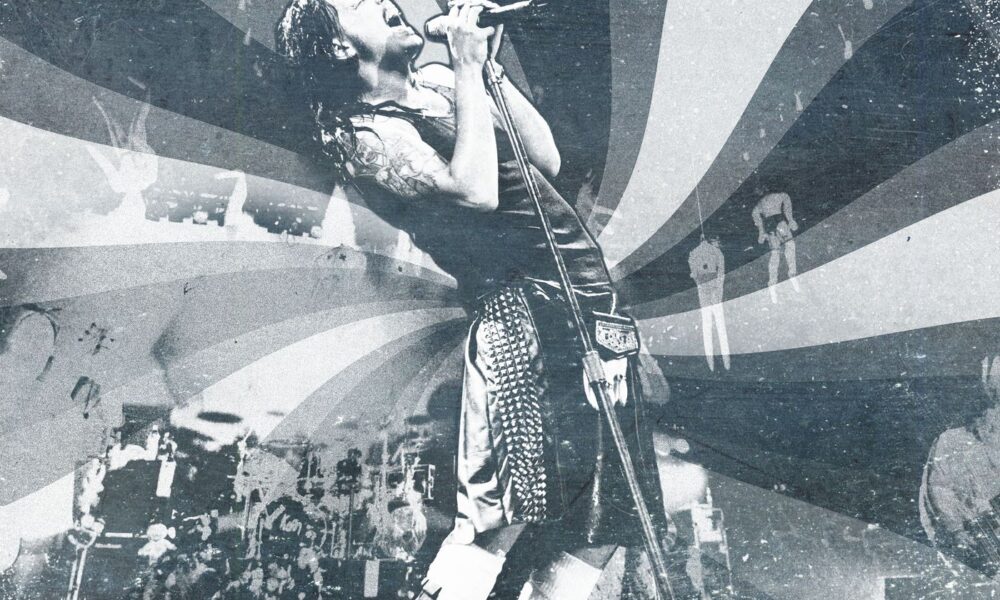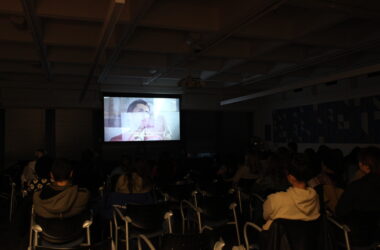The accusation of “selling out” cuts deep within independent music. “Indie” fans often pride themselves on the genre’s self-positioning against the mainstream music industry’s commercialism. Selling out is hence defined by an artist’s relationship to the profit motive. Artists perceived to court sales by pursuing a more popular sound, heavily marketing their music, or licensing it for corporate advertising are accused of prioritizing financial interests over the creative integrity of their work.
By displaying a greed that contravenes a romanticized notion of what and who music serves, these artists are purported to have betrayed the very fans who made them successful. Yet, in an age in which the dominance of music streaming makes earning a living as an artist extremely difficult, seeking alternative commercial revenue seems characterized less by greed than necessity.
The career trajectory of the beloved indie musician Mitski aptly displays how this phenomenon plays out. Having established a solid fanbase over her first four lo-fi indie rock records, Mitski gained a large swath of new fans following the release of Be The Cowboy, as the new, 80s-inspired synth-pop sound she adopted became popular on TikTok. This propelled Mitski to new commercial heights, performing in arenas, opening for Harry Styles’ U.S. tour, and releasing the Billboard 200 top 10 record Laurel Hell.
Predictably, accusations of “selling out” closely followed. A subset of long-term diehard fans derided her poppier sound and new, younger audience, while Mitski herself expressed discomfort with the demands of a fanbase whose idolization of her approaches worship. Yet, while her reoriented sound may be more palatable to mainstream audiences, it maintains the hallmarks of Mitski’s artistic approach, planting moments of intense emotional catharsis amongst snappy riffs and hooks. Fans resenting others for appreciating Mitski’s music for the same reasons they do appears counter-intuitive.
The expectation that indie musicians ought to avoid anything resembling commercial success is pervasive enough to have been internalized by independent artists. MGMT’s debut record Oracular Spectacular satirized the excesses of mainstream popstars, with songs like “Time to Pretend” riffing on cliched mottos like “live fast and die young” and the “cocaine” and “elegant cars” of their fame-seeking peers. In a musical manifestation of Poe’s Law, most listeners still missed this satire as the record achieved massive commercial success and “Kids” and “Time to Pretend” became certified 2000s dance anthems played by DJs for years to come—with few traces of irony.
Amidst this success, a sense that, despite containing music they genuinely enjoyed writing, Oracular Spectacular’s mainstream success was incompatible with their artistic vision, led MGMT to pursue a deliberately more esoteric psych-rock direction on their sophomore album Congratulations. Though Congratulations arguably contained some of their best work, the broader attitude permeating the independent scene—viewing commercial success as antithetical to artistic integrity—seems stifling, constraining artists to aim for the obscure rather than write freely.
Accusing an artist of selling out can be a thinly-veiled excuse for just disliking their new sound. Sebastian Cowan, the founder of the independent Montreal-based record label Arbutus Records, said in an interview with The McGill Tribune that this critique fails to recognize artists’ own creative agency.
“The sound that ‘sells more’ is one that artists often genuinely enjoy and pursue out of their own interests,” Cowan said. “So for a fan on the sidelines who might have the audacity to think that an artist was selling out, the chances are that artist just genuinely wants to make that music [….] If the fan can’t get on board with that, then I guess the fan doesn’t like that artist.”
The sellout critique infantilizes artists, outlandishly asserting that their independent musical choices are in fact profit-centred ones. Commercial and artistic success are not mutually exclusive; an artist’s new sound gaining more traction is little reason to assume they are not passionate about it or no longer care about their craft beyond the profits it generates.
Professor David Brackett, the Canada Research Chair in Popular Music Studies at McGill, pointed out this dichotomy in an interview with the Tribune.
“You have the strange phenomenon in the 60s of artists like the Beatles being celebrated as independent artists while they were the most popular artists at the same time […] even critically celebrated popular artists are often very popular in commercial terms,” Brackett said.
If fans are wrong to criticize artists who change their sound, is it more legitimate to criticize those directly aligned with corporate interests, for example, licensing their music for advertising? Admittedly, there is a hypocrisy which stings when artists whose identities are built around counter-culturalism cozy up to powerful corporations; that an artist as rebellious as Iggy Pop also appeared in car insurance advertisements is plainly ludicrous. But this critique fails to recognize the modern music industry’s material conditions.
Streaming platforms’ dominance has eliminated record sales as a viable sole income source for artists. Spotify pays between $0.0033-$0.0054 per stream to artists on average, meaning all but a select few artists can survive on releasing music alone. Though a stable income was hardly guaranteed to artists prior to streaming, Brackett noted that, even if artists weren’t always fairly compensated during the CD era, streaming has worsened this situation.
“The sale of recordings wasn’t transparent to begin with and many artists were famously ripped off, but it’s much less transparent with streaming because of how it’s paid for,” Brackett said. “People aren’t paying by the stream, they’re paying usually for a monthly service or they’re not paying and it’s just being paid for by advertising.”
Low royalties necessitate that artists undertake lengthy tours to boost their income. However, the margins of touring have dried up following the pandemic, with struggling venues taking a bigger cut of ticket and merch sales and inflation causing transportation and housing costs to skyrocket, preventing fans from attending gigs. Established artists have not been spared: Little Simz and Animal Collective both recently cancelled foreign tours as they were financially inviable.
This financial setup threatens to make music the preserve of the privately wealthy.
Amidst this hostile environment, who can blame independent artists for looking to alternative commercial revenue streams? Artists need to make a living, which is already more challenging for those lacking big label backing—berating artists for using the means available to them feels like punching down rather than up. This is particularly true when the industry’s power dynamics are already stacked against an artist. Working-class musicians for whom musical success entails becoming more wealthy frequently become placed in a double bind whereby their wealth attracts criticism that they have lost touch with their roots.
Meanwhile, musicians emerging from genre scenes created by racialized or marginalized communities can be subjected to heightened scrutiny upon gaining wider popularity. The term “sellout” emerged in the 1950s, levelled against Black musicians when jazz music began to enter the mainstream. White musicians’ co-opting of Black music was and is extremely exploitative, often failing to appropriately credit the Black musicians from whom jazz originated.
However, the music community’s accusation of selling out dangerously misplaces the blame on individuals whose agency becomes constricted by their industry and reception. Focusing on the systemic inequities which enabled this musical theft and co-opting is, in fact, the point.
Hence, since the sellout critique punches down, fans ought to refocus their attention on calling out the music industry’s manufactured precarity and inequities forcing artists to explore alternative commercial avenues. Lobbying streaming services to pay fairer royalty rates would be a good start.
“Streaming should cost more than the 10 or 12 bucks a month that we’re paying […] you could probably charge 20 and everyone [consumers] would still do it, just based upon that you would double the amount of money,” Cowan said. He also pointed out the role large record labels have to play in this process.
“The way in which the major labels agreed to sign their catalogue on Spotify was in exchange for an ownership in the company. And what the major labels negotiated was they agreed to a lower royalty in exchange for a larger percentage of ownership of the company […] they sold out their own artists.”
Public institutions also must be lobbied to commit arts funding to ensure music careers are financially viable and reduce barriers to entry. Scottish indie-pop band Belle and Sebastian are a testament to this kind of institutional power, having formed through a government social welfare program called Beatbox which provides funding and practice spaces to unemployed musicians.
By directly lobbying streaming services and public bodies to actively improve the conditions artists operate within, fans can target their attention to those who actually hold the power to change things for the better. That is, rather than criticizing so-called “sellouts,” criticize those responsible for denying artists a fair reward for their craft.








